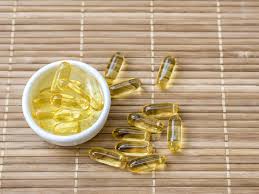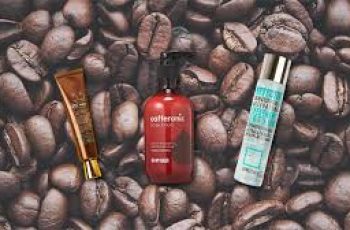
Vitamin E in Skin Care
Vitamin E is used as an ingredient in skin care products for anti-aging, anti-inflammatory, and whitening products.
It is a powerful antioxidant that can be taken regularly along with a normal diet.
If you are looking for a well-researched and safe antioxidant to treat sunburn or wrinkles, read on to find out if vitamin E is right for your skin type!
What is vitamin E?
Vitamin E is a group of compounds consisting of compounds such as tocopherol and tocotrienol derivatives.
The four tocopherol compounds commonly referred to in medicine as “vitamin E” are α-, β-, γ-, and δ-tocopherol. (a, b, g, d)
Of the four variants, α-tocopherol is processed most efficiently in the body and is the most abundant in common plant species.
Therefore, α-tocopherol is the most commonly used form of vitamin E in skin care products.
Interestingly, the recommended daily intake of vitamin E is based entirely on the recommended amount of α-tocopherol, not the other three vitamin E.
Vitamin E is a potent antioxidant and is fat-soluble. This allows it to penetrate deep into the skin and reduce radiation-induced free radicals. (2)
Synthetic vitamin E varieties are used in medicine, but are less effectively absorbed by the body than natural vitamin E compounds. (23)
How does it work?
Vitamin E (particularly alpha-tocopherol in skin care products) has antioxidant properties due to its ability to bind and eliminate free radicals on the skin.
The structure of alpha-tocopherol enables it to bind to multiple free radicals at once, making it extremely effective in sun damage or anti-aging treatments.
Vitamin E is fat-soluble and can penetrate deep into the skin. (31)
This compound is important for the proper regulation of free radicals in the body. Low levels of vitamin E are considered an early sign of oxidative damage. (7,8)
Vitamin E should be used in conjunction with ingredients such as vitamin C or coenzyme Q10.
These donate electrons to vitamin E, which, after eliminating many free radicals, converts it back into an antioxidant to eliminate more free radicals. (1)
Studies have also shown that vitamin E slows down the synthesis of prostaglandin E2; this makes the active ingredient an anti-inflammatory in skin care.
Research suggests that inhibiting prostaglandin E2 may also increase collagen synthesis, which can make the skin stronger and less prone to wrinkles. (6)
Benefits
Vitamin E is one of the most versatile ingredients in skin care, acting as an antioxidant, anti-aging agent, anti-inflammatory agent, and skin lightening agent.
As a powerful antioxidant, vitamin E is great for treating/preventing wrinkles and fighting free radicals that cause genetic damage and skin aging.
Studies have shown that alpha-tocopherol, combined with ingredients such as ferulic acid, can effectively protect the skin from UVB radiation. (28)
Many studies have shown that atopic dermatitis, also known as eczema, responds positively to vitamin E treatment. (9.29)
Alpha-tocopherol also has a mild effect on dark spots and disrupts melanin production through various mechanisms, which we will explain in detail below. (41,42)
Vitamin E can also be used to treat facial wrinkles, deep wrinkles, or rough skin. (22)
Vitamin E has also been shown to promote collagen synthesis and has anti-inflammatory and immune-stimulating effects. (6)
Oral vitamin E is said to help reduce the dryness of the skin caused by Accutane.
Side Effects
Although vitamin E is a popular ingredient in many consumer products, there are still some things to consider before incorporating it into your daily skincare routine.
Studies show that vitamin E can cause skin allergies in nearly 20% of patients. (33) It is listed on the list of ingredients that may cause skin allergies.
Reactions to topical vitamin E may include burning, dryness, or redness.
Some forms of tocopherol, including alpha-tocopherol, show a significant contact irritation rate compared to many other ingredients. (33)
If you have sensitive or dry skin, products containing high levels of vitamin E may worsen eczema or skin redness. (40)
One study found that vitamin E supplements may worsen certain surgical scars. (33)
Is Vitamin E Safe?
Is it Safe?
Vitamin E is safe in cosmetic formulations and does not pose a significant health risk.
The Cosmetic Ingredient Review Panel has conducted extensive research on the use of this ingredient in skin care products and found it to be safe for commercial formulations.
The EWG rates tocopherol a 1-2, which means it is safe.
Vitamin E is considered a safe ingredient, but is not always gluten-free.
If you do not have contact sensitivity or allergies to vitamin E products, it is likely a safe addition to your personal skin care routine.
Vitamin E may treat the following specific conditions:
Anti-Aging
Vitamin E is one of the most commonly used ingredients in anti-aging products. Antioxidants are among the most effective anti-aging agents.
Many causes of skin aging can only be treated with antioxidants. (43)
Studies have shown that antioxidants such as vitamin E and vitamin C can protect collagen and elastin from glycation (damage caused by sugars, such as those in honey). (44)
Studies have shown that topical application of tocopherol can reduce the depth of existing wrinkles. (21)
Since there are many reasons for skin aging, and not all of them are related to oxidative damage, the best anti-aging products contain a combination of active ingredients that complement each other.
Some excellent anti-aging ingredients that can be combined with vitamin E include:
Borage seed oil, Coenzyme Q10, Ferulic acid, Glycolic acid, Jojoba oil, Retinoids, Safflower oil, Salicylic acid, Pigmentation
Alpha-tocopherol, vitamin E is a good addition to products used to treat pigmentation issues such as melasma, inflammatory pigmentation disorders, or sun-induced discoloration.
Vitamin E disrupts melanin production in keratinocytes without affecting normal cell development. Therefore, vitamin E is a good adjunct to treating pigmentation spots. (42)
Research has also shown that vitamin E interferes with tyrosinase receptors at certain concentrations.
(41) Tocopherol is particularly suitable for lightening pigmentation spots caused by sun exposure.
If you are looking for a safe, natural and proven skin lightener, vitamin E is a good choice.
However, whitening ingredients are best combined with other whitening agents to enhance the effect.
Inflammation
Vitamin E has anti-inflammatory effects because it inhibits the production of various prostaglandins. These compounds can cause redness, swelling and other symptoms of inflammation.
Free radicals produced by UV radiation can also cause irritation and skin sensitivity. Antioxidants such as tocopherol can reduce this damage. (44)
This is why many anti-inflammatory products contain vitamin E.
Inflammation can be caused by a variety of reasons. Therefore, it is important to understand the scientific basis of inflammation before purchasing skin care products.
Different types of inflammation are caused by different reactions of the body. Vitamin E is best for treating skin inflammation caused by prostaglandins or oxidative stress.
Sun Damage
Antioxidants, such as alpha-tocopherol, are great for treating sunburn because they can remove gene-damaging free radicals from the skin and protect the skin from UVB radiation.
Research shows that vitamin E deficiency can lead to increased oxidative stress and genetic damage. (2) Genetic damage in the skin can lead to skin cancer.
Taking vitamin E topically or orally can protect the skin from free radical damage. Therefore, a diet rich in vitamin E is a good preventative measure for sun damage.
Many common sunburn treatments contain ingredients rich in vitamin E because of its antioxidant effects.
Research has also shown that topical vitamin E can prevent the formation of damaged, sunburned cells in the skin. (12,13)
Other studies on alpha-tocopherol show that it can significantly reduce the damage caused by daily UVB radiation. (14,15)
Vitamin E is less suitable for treating damage caused by UVA radiation. (21)
Vitamin E is one of the most studied antioxidants for sunburn treatment and is considered one of the most effective defenses against UVB radiation.
Vitamin E Fights Sun Damage
Vitamin E Skin Care Products
Oral vitamin E has many of the same skin care benefits as topical vitamin E.
Research shows that oral tocopherols can reduce redness and burning caused by UV rays. (23)
Studies have also found that oral vitamin E supplements can hinder the breakdown of elastin, a protein that keeps the skin elastic and healthy. (24)
Unfortunately, when taking oral tocopherols, you lose the UV protection you get. Vitamin E supplements do not protect the skin from the sun as well as topical products do. (25)
Overall, vitamin E supplements are completely safe and have some benefits for skin health.
If you take vitamin E supplements, they will not affect your skin care regimen.
Benefits of Vitamin E for Men’s Skin Care
Vitamin E is a great choice for men’s health products, whether in topical or tablet form.
It is well known that vitamin E is essential for the normal production of testosterone and other reproductive hormones in both men and women. (45)
For men, there are no general risks associated with using vitamin E products for skin care.
If you want to add an effective antioxidant to your skin care routine, take our quiz to determine your skin type before choosing a vitamin E product.
Serums
Serums are highly concentrated liquid forms of certain ingredients. Vitamin E serums have all the properties of a high concentration of tocopherol.
If you need a highly effective antioxidant in your skin care routine, vitamin E serums are a good choice.
Serums are often among the most expensive skin care products. So before you buy one, make sure they are indeed the right fit for your skin care routine.
Vitamin E serums
Oils rich in vitamin E
Many natural ingredients commonly used in skin care contain vitamin E (alpha-tocopherol).
Our five favorite natural skin care oils rich in vitamin E are:
Almond oil, Grapeseed oil, Peppermint oil, Rosehip oil, Sunflower oil


